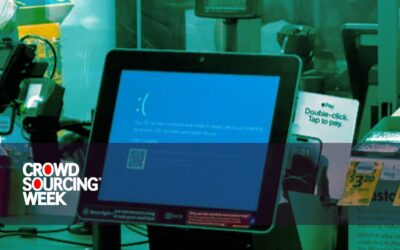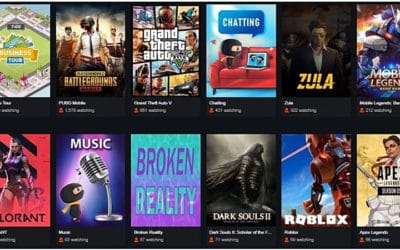Check out our curated Weekly Roundup of the breaking news and must-read thought leadership pieces on the crowd economy spotted by the Crowdsourcing Week team.
DBS Bank has partnered up with P2P lending platforms to expand funding sources to small businesses
Retailer of Apple products, EpiCentre, is the first company to have raised $1 million in 26 hours on MoolahSense. Check this article to find out about more mainstream companies turning to crowdfunding platforms
The retailer of Apple products rolled out two fund-raising campaigns on MoolahSense on March 14, raising a combined $1 million in 26 hours for stock inventory purchases. It launched a third campaign three days later for $500,000, which was fully funded in about a week. MoolahSense chief executive Lawrence Yong said EpiCentre is the first listed company to have raised funds on the crowdfunding platform. “Sometimes, in business, you don’t have time to wait – if the opportunity is there, you have to grab it. So it’s important that companies have this quick, flexible access to capital, which can give them a competitive edge.” He also noted that P2P lending allows companies to diversify their sources of funding in a way that involves less time and money compared with issuing bonds or filing for an initial public offering.
UNESCO crowdsourcing the preservation of world heritage
ReclaimHistory.org has launched United4Heritage initiative powered by UNESCO, to preserve digitally threatened cultural monuments all over the world
“ReclaimHistory.org provides users with a much more visually immersive experience, encouraging them to explore historical sites that have been lost around the world,” Vincent said in a statement. “In many cases, physical restorations are impossible due to the extent of the destruction, but through crowdsourcing the digital preservation of the memory of that heritage, not only does it provide a way for the public to engage with lost heritage, but also to have an active, tangible role in preserving it.”
Crowdsourcing algorithms aim to get people out of poverty
This story shares details of how Coordinated Science Lab at Illinois and Lav Varshney have built algorithms that more efficiently match employees to jobs that complement their talents
“We are trying to more efficiently match their talents and skillsets with job requirements,” said Avhishek Chatterjee, a postdoctoral scholar in Varshney’s group. “For example, a job might come along that requires knowledge of a certain programming language like C++. Should the job be given to anyone who knows C++? No—it should go to somebody who only knows C++, and then save another worker, with an additional specialized skill, for a job where they might be more useful later.” “Not only does the algorithm improve efficiency, but it also operates in a decentralized way so that people can choose what job they want to do rather than being controlled centrally. People like this freedom of choice,” said Varshney, an assistant professor of electrical and computer engineering.
American Apparel turns to crowdsourcing
One of the largest apparel manufacturers, American Apparel, has decided to crowdsource its accessories. Read more here
The retailer is letting small businesses and vendors pitch their products in 90-second videos for the chance to be sold at American Apparel, the company announced Wednesday. “Cutting and sewing 100% of our garments in America is at the core of our DNA,” American Apparel Senior Vice President of Marketing Cynthia Erland said in a statement. “We want to continue to support manufacturing in the US by giving small businesses the opportunity to thrive and succeed.”
Silver Line Bus gets crowdsourced
Crowdsourced data may be the answer for a better Silver Line Bus ride! Here is how the Massachusetts Bay Transportation Authority (MBTA) will crowdsource data to improve commutes for Boston residents
“The digital age is changing customer preferences and expectations in our urban mobility systems, introducing new mobility business models and shifting the relationship between customers and transportation service providers” says P. Christopher Zegras, associate professor of transportation and urban planning at MIT, and faculty lead for the project. “In this project we are trying to capitalize on these dynamics to create an innovative, and hopefully fun, way for the T’s users to provide real-time feedback on their travel experience through their smartphones. The T has been a great partner in moving this project forward.”
The European Commission supports crowdsourcing for Europe’s start-ups
Here is the report of the European Commission on the EU crowdfunding sector, part of the Capital Markets Union Action Plan
“As part of our work to improve the funding conveyor belt for businesses, we are keen to support the development of crowdfunding models as a source of financing for entrepreneurs with bright ideas, start-ups and other SMEs. Our focus is on promoting best practice, appropriate investor protection and consistency of national regimes. We will continue to monitor market and regulatory developments closely.”
A 17 year old boy is crowdfunding Marvel – VR headset
Read the story of Erik Finman who made $100,000 in Bitcoin and now has launched his Indiegogo campaign to help fund Marvel, a VR headset that works with Android smartphones
For those features and compatibility, the Marvel comes at a higher price than the similarly positioned Samsung Gear VR, which costs $100. Finman is selling his headset for $250 ($200 for early birds). The Indiegogo financial goal is $500,000, and he plans an initial run of about 2,000 headsets. “For me, I’m glad that I’ve hired people that have a lot of experience in shipping and a lot of experience with third-party logistics providers, and a lot of manufacturing and developing experience,” Finman said. “Although I am new to manufacturing, these people are not.”
Image credit: straitstimes
There are many fantastic stories out there. What else caught your eye this week? Did you come across some breaking news or a good thought piece? Do share them with us…




0 Comments